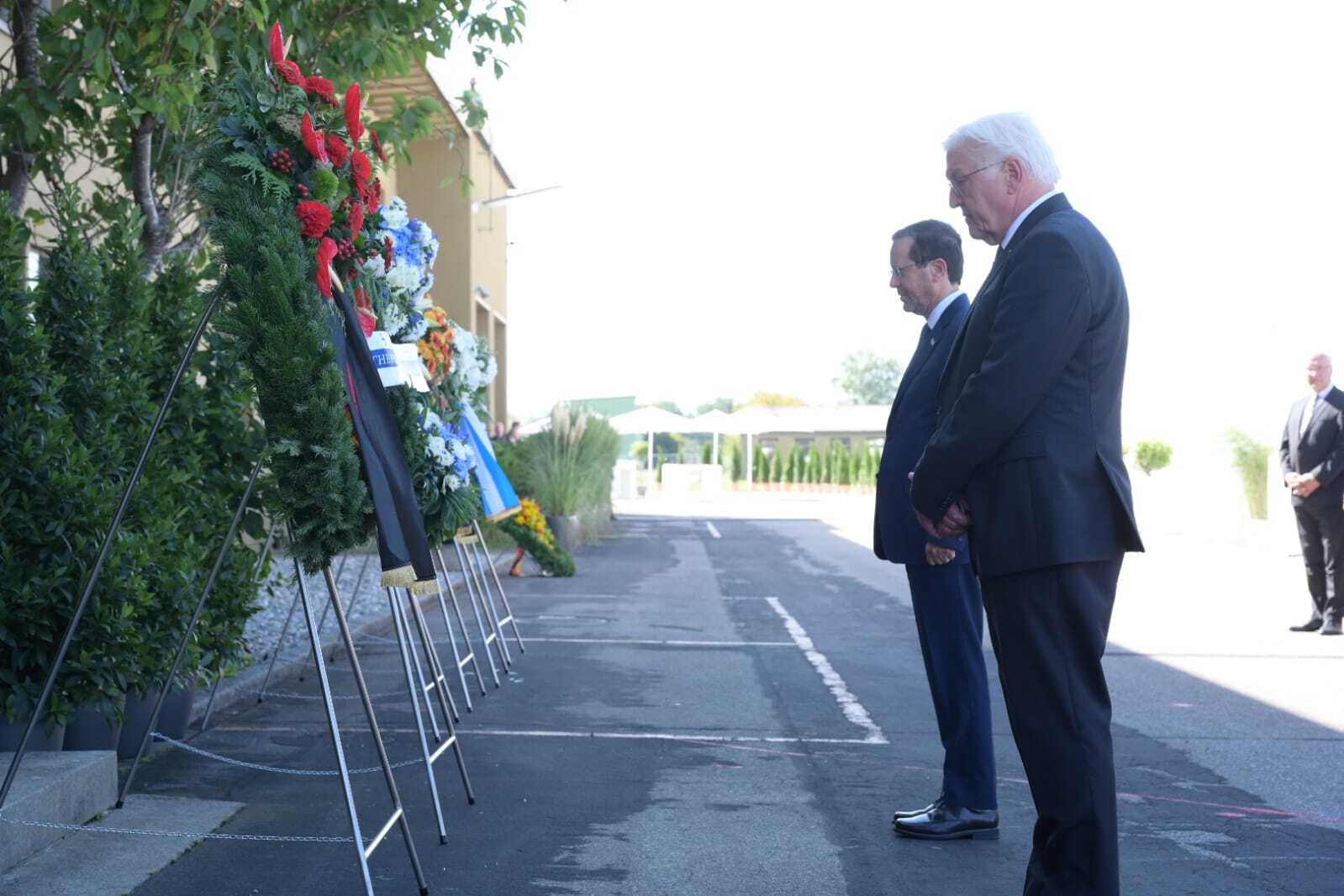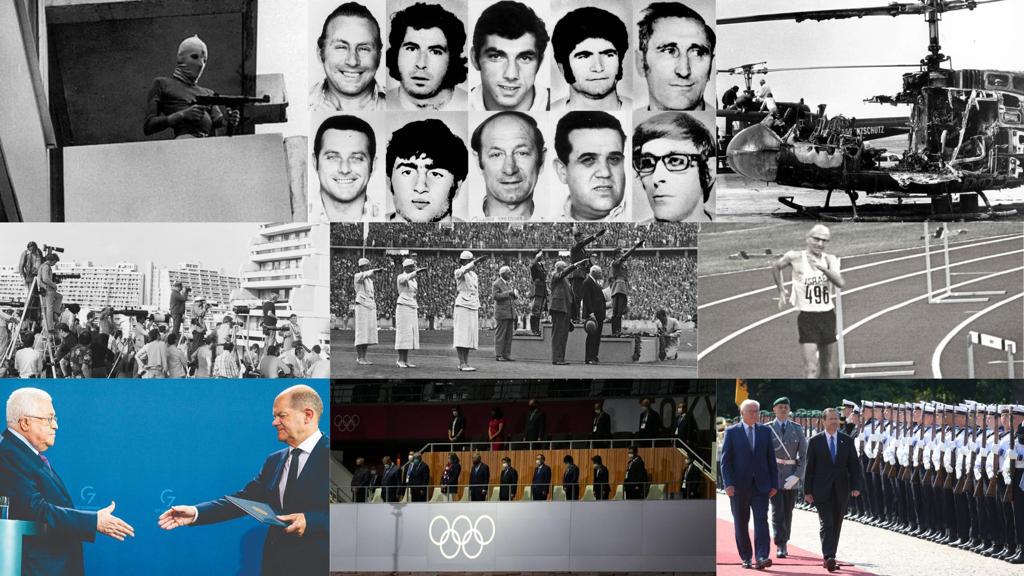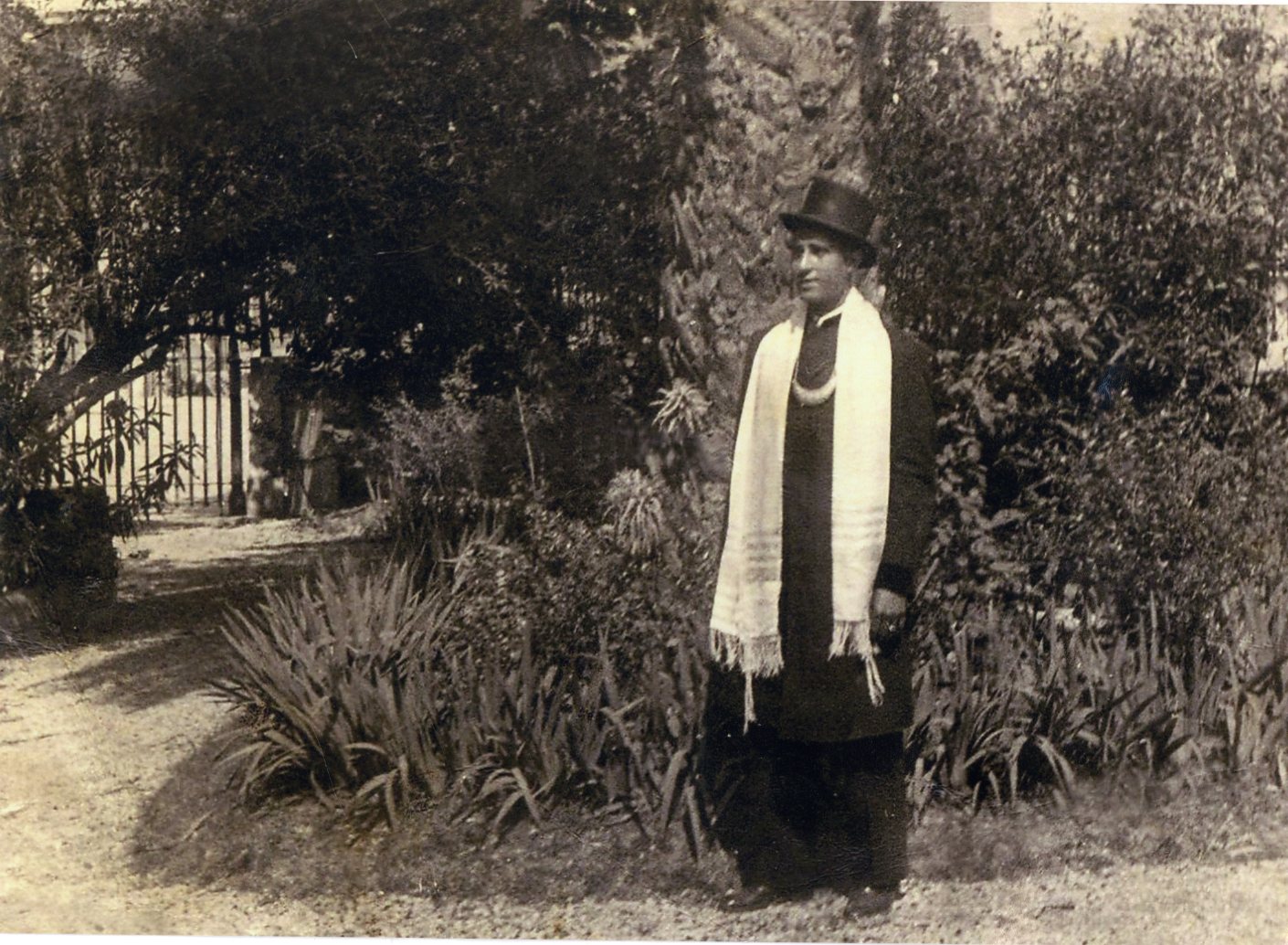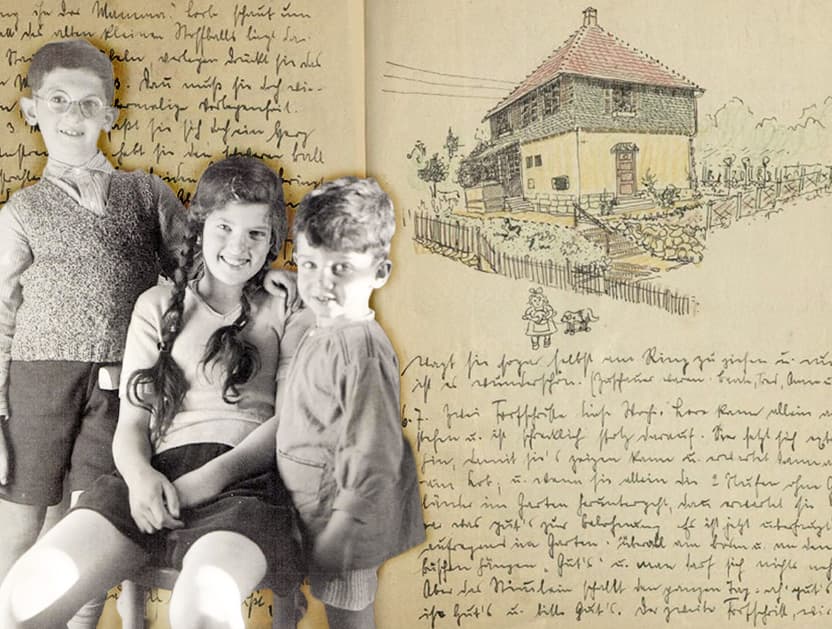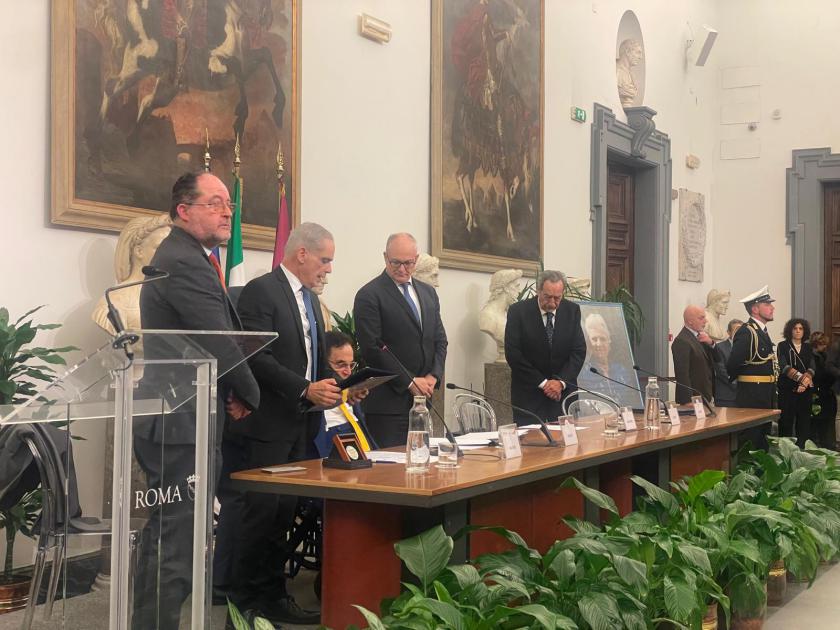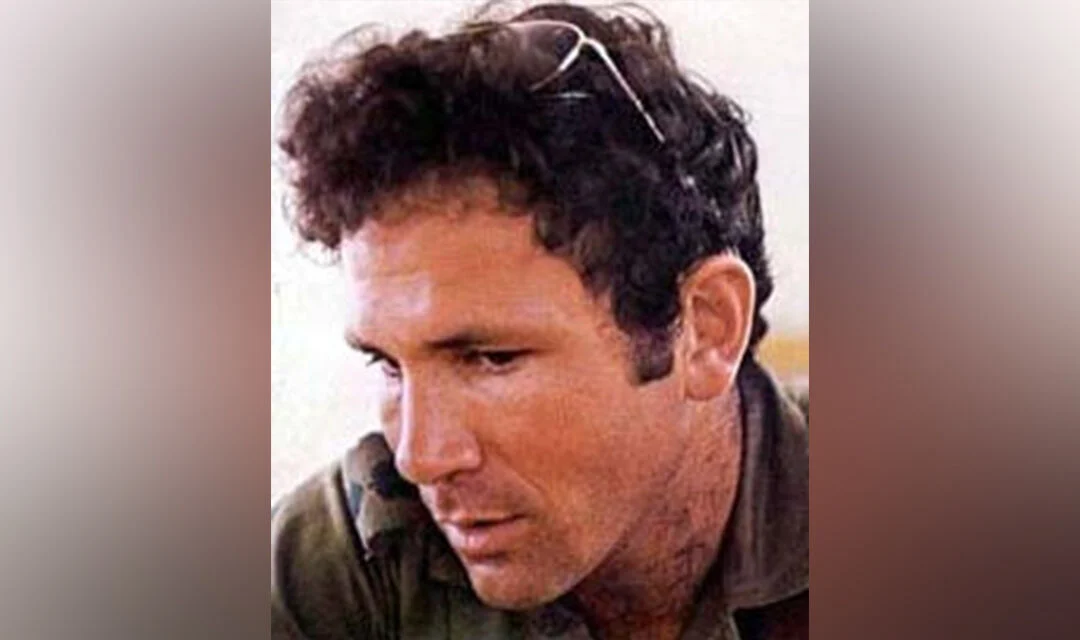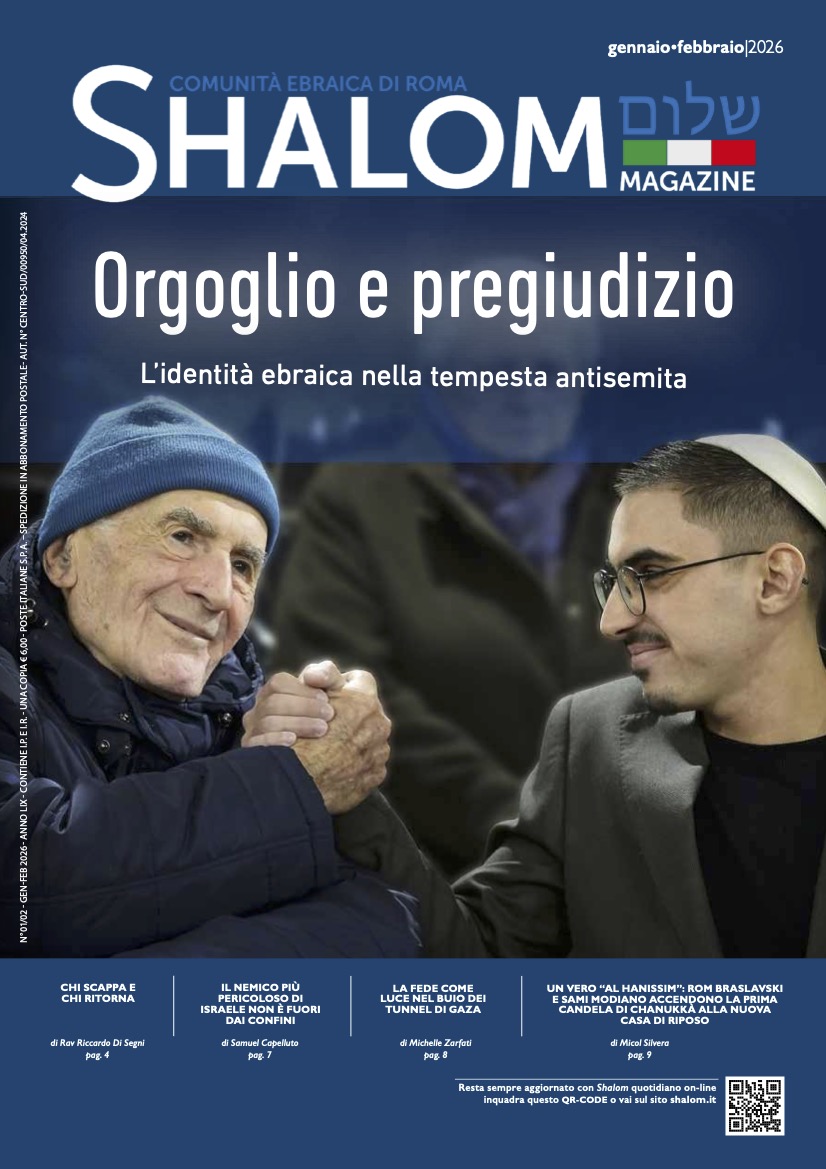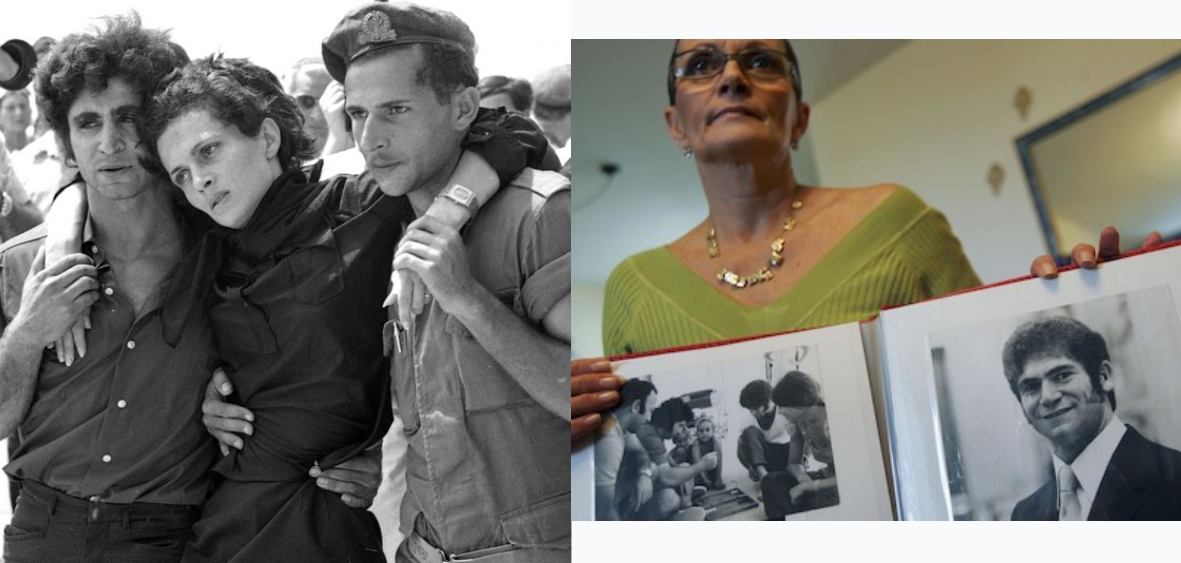
Fifty years have passed since the attack at the Munich Olympics in 1972: the sporting event turned into a massacre – both physical and in the media – of the athletes of the Israeli delegation. A tragedy that took place in the light of day, under the eyes of the world. A combination of the ghosts of the past of a not too distant Second World War and more recent Islamic terrorism. In the very place where millions of Jews had been exterminated for the sole crime of having been born, another 11 innocent people were tortured and then killed for the same motive: having taken to the field wrapped in the flag of Israel. The Olympics did not stop, they continued undaunted as if nothing had happened. Only one commemoration ceremony was organized in the Olympic stadium. Too little, according to many, for the outstanding quality of Israeli sport. Among the victims of Black September, the Palestinian terrorist organization, there was the weight-lifter of Italian-Libyan origins, Yossef Romano, the only one who tried to resist, to oppose the terrorists, paying perhaps the dearest price: mutilation and then humiliation, as well as death. A moment before the fiftieth commemoration of the massacre that marked history, his wife Ilana Romano tells Shalom of the anger she still feels towards the German government, and the love she will never cease to have for her Yossi.
Ilana, let’s go back in time, to that distant September 5 of 1972. What is the first memory you have of the day of the attack?
First of all, I remember what happened before the attack, when the day before my husband’s departure for Munich, I said to him: “I’m afraid, I don’t know why, but I’m trembliing”. I had a feeling that something might happen, something bad. He reassured me by telling me that the Germans always do everything right and that this time too they would leave no room for mistakes of any kind, certainly not for any terrorist attacks.
Instead, you were right.
I was right. On September 5th, a neighbour knocked on the door and asked me if I knew what had happened at the Olympics. She spoke of an attack, of somebody dead. At that time we didn’t use the phone as we do today and I hadn’t been contacted at all. I immediately got in touch with the head of the Israeli delegation, and he told me that Moshe Weinberg had been killed. No other news, no answers to my questions.
This means that at that moment you knew that there were bombers in Munich and you knew that your husband might be one of the victims, but you were not yet fully sure.
Exactly, but I came to a simple conclusion. I thought that Yossi knew that I was afraid of an attack, I had mentiond it to him a moment before his departure. Yossi also knew that news runs fast and that I would soon find out about Weinberg. I thought if he was alive, he would contact me. That he would let me know that he was safe. But he didn’t.
How did you live in that limbo? How did you survive the unknown, between life and death?
Every time of the phone rang it made me jump. Then, at 6:00 pm, when my house was already full of members of my family, there came another knock on the door: it was the head of the delegation accompanied by a policeman and a doctor. They told me that Yossi was badly injured, but I knew they were lying. I told them, “I can see your faces, you’re not telling the truth. Look me in the eye and tell me what has happened to my husband.” They answered that Yossi was the second victim of the attack. Yossi had been killed.
What did you feel at that moment?
I just passed out. I fainted and fell to the floor.
Don’t you remember anything of those moments?
Absolutely nothing. It was as if the world had vanished and I with it. I woke up the next day and didn’t dare ask if it was a nightmare or if it was real. Then I saw the red eyes of the peeople surrounding my bed and I understood. I didn’t have to ask anything and received no answers, it was already clear. At that moment I just wanted his team companions to come back to Israel and tell me what had happened, and it didn’t even occurred to me that they too had been killed. Then, when I went to the airport to receive Yossi’s coffin, I suddenly saw another coffin, and another, and another. They were Berger, Friedman, Spitzer, Springer. All his fellow teammates had been killed.
So you suddenly realized that no one would ever tell you what really happened to your husband.
That’s right. Those were very difficult moments, impossible to bear. Yossi had dreamed of reaching the Olympics, but he promised me that it would be his last competition. Then he would have devoted himself to us, to the family. He was the love of my life, he was the father of my three daughters. The youngest, she was only five months old.
How did you explain the killing of their dad to the girls?
I didn’t see them that day, they only brought them to me the next day. They came into my room with trembling lips and red eyes. They were afraid of crying in front of me. I told them: “You can cry, a terrible thing has happened to us, little girls, you can cry.” They asked me who killed Daddy, and I said they were terrorists. “Arabs?” They asked me. “Terrorists”, I repeated. Yossi had several Arab friends in the sports field, great athletes too. I didn’t want my little girls to lose faith in others, I didn’t want them to start being afraid of their neighbours. Then I hugged them, I assured them that I would be their mum and dad, that they would never feel the want of anything. “We’ll tell the whole world who Daddy was, no one will ever forget him,” I promised. Fifty years have passed since then, and I’ve always kept my promise. I’ve never broken it.
Did the Germans apologize to you? Did they take responsibility for what happened?
When the bodies of Yossi and his companions arrived at the airport, even before their burial, the German Interior Minister, Hans-Dietrich Genscher, had sent telegrams everywhere, saying that Germany was not at fault, that it was not involved in any way in the attack, whereas, I’m convinced that Germany has encouraged terrorism and I will not rest until the greatest of German historians brings out the whole truth. We have strong evidence that Yossi’s killers were in Germany between 1974 and 1984, and that they lived in total freedom. We know they have never served their sentence, never, not even a single day. And to us, the victims, what have we been told? That it was our fault that terrorism had come to Munich. That the terrorists were fighting for their freedom. For fifty years we have suffered these injustices, this meanmindedness.
Without eyewitnesses, how did you find out what happened to Yossi?
I never stopped investigating for a moment, digging deep into the story, returning to all the archived documents of the investigation. Then, one day, my lawyer got in contact and told me that he’d received some unpublished photographs showing what had happened in the room where Yossi was lodging. When I saw him, he he was already regretting it, he didn’t want me to see them anymore, he said they were too terrible. “Nothing is more terrible than my imaginings,” I explained to him, and he accepted. He showed them to me.
It’s said that Yossi tried to stop the terrorists and that his body was shown to the other hostages, as a warning not to try resistance. It is said that Yossi was raped, emasculated and left to die in front of his companions.
It’s all true, the death my husband suffered was the most terrible imaginable, with the most atrocious tortures typical of assassin culture. When Spielberg said he wanted the photographs for the making of his Munich film, I only asked for Yossi’s private parts to be blacked out. Initially the good Jewish director did not accept, and I was disappointed and hurt. Then, after great pressure, he gave in.
Did it surprise you to find that your husband was the only one to turn on the terrorists?
Absolutely not, I’m convinced he would have done so. That’s how Yossi was. He would never have allowed other Jews to be unjustly killed in Germany. Not anymore.
Are you proud of him for attempting that last heroic deed?
No, I would have been prouder of him if he had come home alive, not in a coffin.
What kind of husband was Yossi?
He was the perfect husband, he treated me like a queen, he never said no to me, he always made my every wish come true. With him, a piece of my heart, of my soul, of my happiness has gone also.
And what kind of father was he?
The girls wouldn’t go to sleep without his goodnight kiss, without him lifting them up and tossing them up. Higher and higher. Do you believe me when I tell you that he never raised his voice to them? That he never scolded them?
I believe you Ilana. Today, how do you imagine him today?
I imagine him with his beautiful curly hair, looking at me, taking me in. Even fifty years later, I can’t resist his gaze.
When you think about him, what do you miss most?
I especially miss what we didn’t experienced together. I missed him at the wedding of our daughters and the birth of our grandchildren. I miss him when I think about what he didn’t have time to see, to experience.
Fifty years have passed Ilana. After Yossi, have you ever loved again?
No. Yossi was, and remains, the love of my life.






